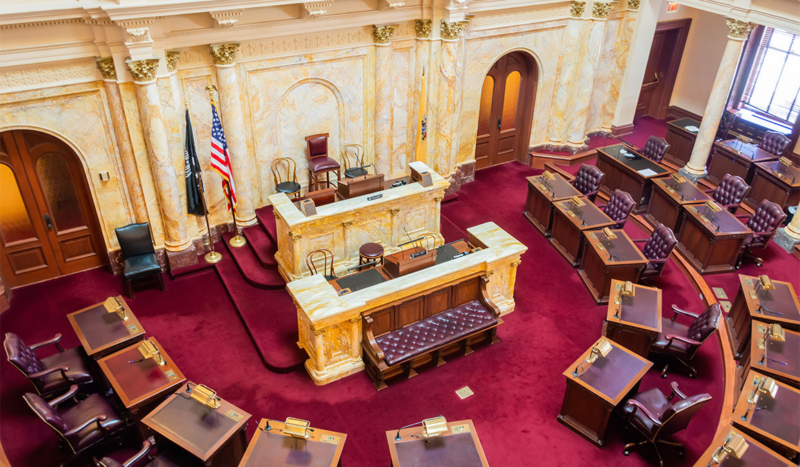
Alizada Studios / Shutterstock.com
CV NEWS FEED // The New Jersey Supreme Court heard arguments April 28 in a pivotal case that could determine whether a state grand jury may publicly accuse the Diocese of Camden of mishandling clergy sex abuse cases — without issuing formal criminal charges.
The diocese is asking the court to block a potential grand jury presentment, which is a formal statement issued by the jury that brings attention to a crime when no formal charge or indictment has been filed. The diocese argues that such actions unfairly target private institutions and bypass due process.
The New Jersey Monitor reported that the diocese has quietly been attempting to prevent a presentment since 2019, after a grand jury in Pennsylvania returned one that resulted in the accusation of hundreds of priests who had abused more than 1,000 children over the course of 70 years. Former New Jersey Attorney General Gurbir Grewal, a Democrat, had also announced in 2019 his determination to investigate clergy sex abuse.
The Diocese of Camden’s attorney, Lloyd Levenson, argued before the state Supreme Court that presentments only apply to “imminent” public harms done by public officials, not private entities.
“If this court expands the scope of a grand jury presentment to include private individuals and private entities, conducting investigations in secret under the sole influence of a prosecutor with no opportunity to present a defense, the grand jury’s authority will be unlimited,” Levenson said, according to the New Jersey Monitor. “Presentments were never intended to call attention to private conduct within private entities.”
According to local outlet Asbury Park Press (APP), Levenson said the diocese is not trying to hide previous instances of clergy sex abuse, noting that it has cooperated with the state to investigate crimes for decades.
The Catholic Star Herald, the diocese’s newspaper, reported that the diocese had published a list of credibly accused priests in 2019. Around that time, New Jersey also decided to reopen the statute of limitations on childhood sex abuse cases, sparking lawsuits that prompted the diocese to file for Chapter 11 bankruptcy to responsibly settle claims from clergy sex abuse victims.
Levenson raised concerns before the court about investigating the Church and accusing individual priests of abuse, questioning whether it came from “partisan” motives.
“The goal here is obviously to condemn the Catholic Church and to condemn priests and bishops,” he said, according to APP.
The New Jersey Monitor reported that he added, “You’d have to be Rip Van Winkle to not realize what is going to come out of this. I can tell you what’s going to come out of it: They’re going to say that from 1940 to the present, because that’s what the subpoena included, that there was problems in the Catholic Church with child sexual abuse.”
New Jersey Deputy Solicitor General Michael Zuckerman argued before the court that it is “highly premature” and “inconsistent with the rule” to stop the presentment before it exists. According to APP, he argued that investigating the diocese’s past cases of clergy sex abuse would improve “the general welfare” of society.
Several Supreme Court justices appeared to side with Zuckerman, saying that since the presentment does not yet exist, no one can say whether it is “based on partisan motives,” according to the New Jersey Monitor.
The article stated that another justice considered it “really difficult to speculate as to what a presentment — if 12 grand jurors even vote on a presentment — will look like,” adding that it’s hard “to determine how to assess something that has not yet come into existence.”
According to the New Jersey Monitor, the justices also discussed the terms of presentments and to whom or what they may be applied.
State prosecutors want the court to make a decision before it takes its summer recess.

